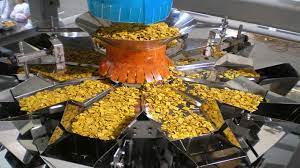UNMASKING THE CULINARY DECEIT: BATTLING FOOD ADULTERATION AND CONTAMINATION IN INDIA
AUTHOR – ANANYA RAY, STUDENT AT KIIT SCHOOL OF LAW, BHUBANESHWAR
Best Citation – ANANYA RAY, UNMASKING THE CULINARY DECEIT: BATTLING FOOD ADULTERATION AND CONTAMINATION IN INDIA, ILE JOURNAL OF FOOD LAW AND POLICY (ILE JFLP), 1 (1) of 2023, Pg. 1-7, APIS – 3920 – 0060 | ISBN – 978-81-964391-3-2.
Abstract
Food adulteration and contamination pose significant challenges to public health and consumer well-being in India. This abstract explores the prevalent types of food adulteration in India, common contaminants found in food, their health implications, measures to detect and prevent adulteration, and the legal consequences associated with food adulteration and contamination. The types of food adulteration prevalent in India encompass various practices such as mixing inferior quality substances, using unauthorized food colors, adding synthetic additives, dilution with water or other substances, and the use of non-permitted preservatives. These adulterants can be found in commonly consumed items like milk, spices, oils, and grains, among others. The presence of contaminants in food further exacerbates the risks associated with adulteration. Common contaminants include heavy metals (such as lead, mercury, and arsenic), pesticide residues, microbial pathogens, mycotoxins, and chemical additives. Consumption of such contaminated food can lead to acute and chronic health problems, ranging from gastrointestinal disorders and organ damage to carcinogenic effects and compromised immune systems. Efficient detection and prevention methods are crucial to safeguarding public health. Robust laboratory testing, including techniques like chromatography, spectrometer, and microbial analysis, are employed to identify adulterants and contaminants. Enhanced surveillance, regular inspections, and stringent enforcement of food safety standards are essential to curbing adulteration practices. Additionally, promoting consumer awareness and encouraging responsible sourcing and manufacturing practices can contribute to prevention efforts. Legal consequences for food adulteration and contamination serve as a deterrent against such practices. In India, the Food Safety and Standards Act (FSSA) establishes strict regulations to combat adulteration. Violations can lead to penalties, fines, imprisonment, product recall orders, and cancellation of licenses or registrations. The FSSA empowers the Food Safety and Standards Authority of India (FSSAI) to enforce and monitor compliance with food safety standards, ensuring accountability throughout the food supply chain.
Keywords: Food adulteration, contamination, India, types of adulteration, common contaminants, health implications, detection measures, prevention measures, legal consequences, Food Safety and Standards Act (FSSA).
